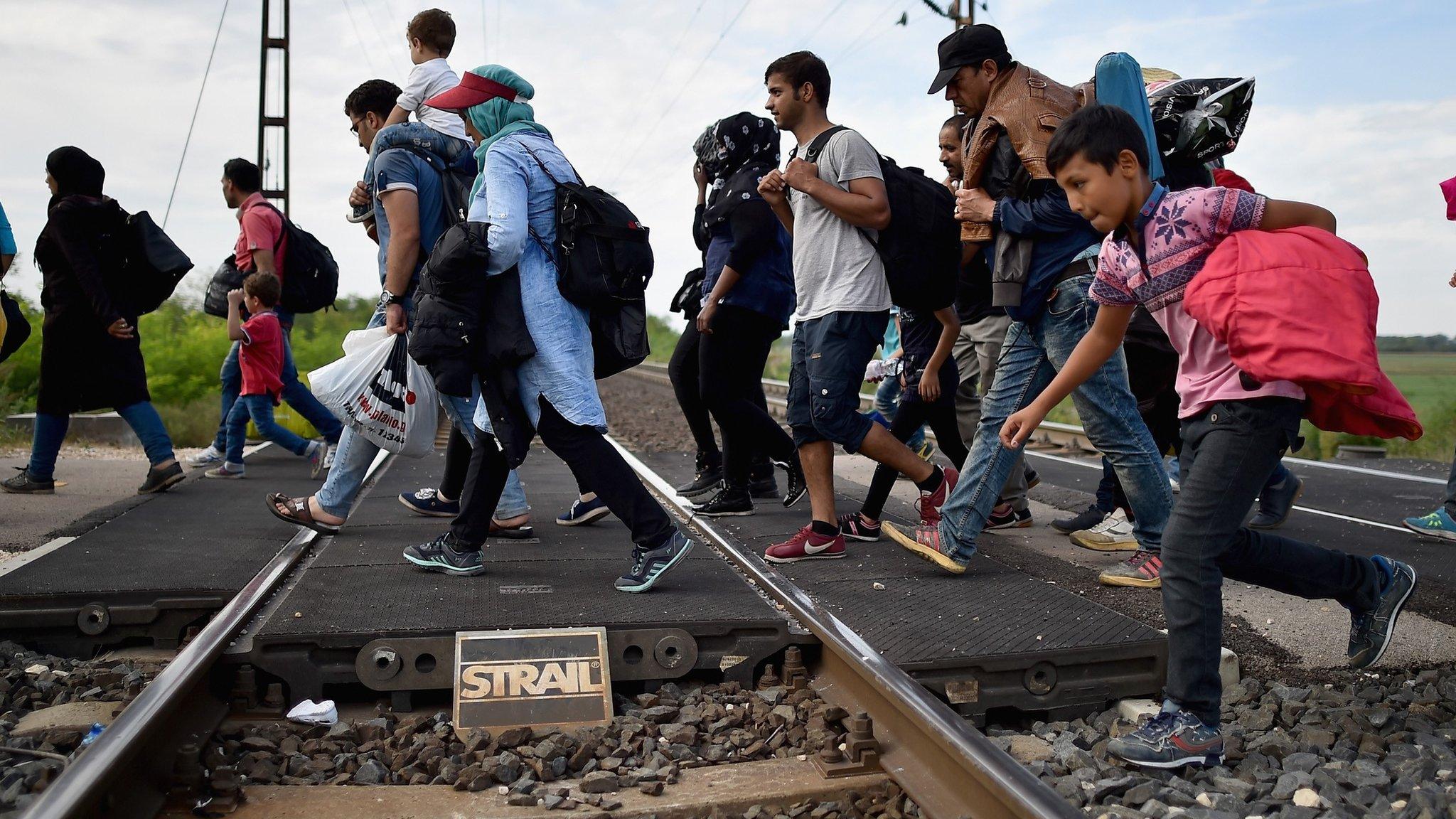Migrants risk death with smugglers despite lorry tragedy
- Published
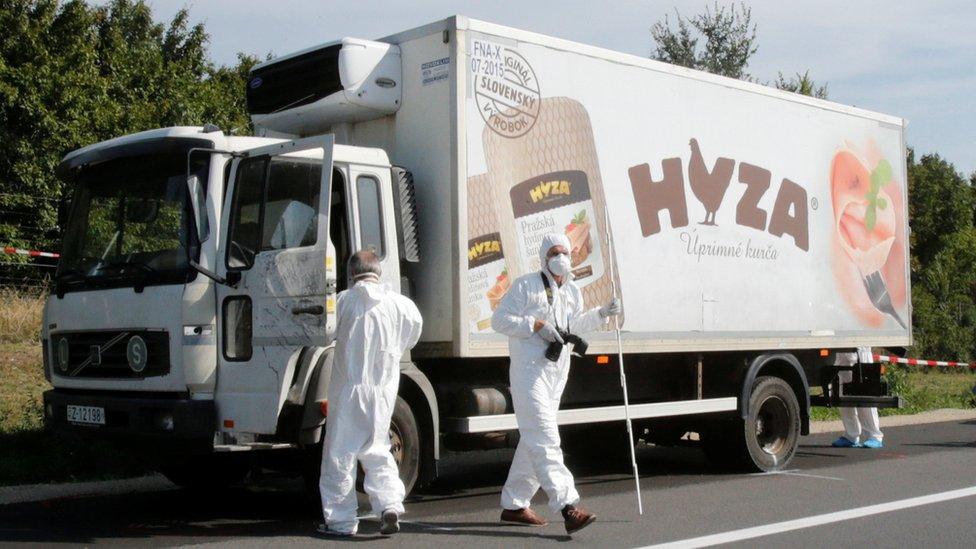
The unventilated lorry in which the 71 victims were found was designed to carry frozen meat
The grisly discovery of 71 bodies decomposing in an abandoned lorry on an Austrian motorway marked a turning point in Europe's migrant crisis.
It led to an outpouring of sympathy for refugees and was a catalyst in the decision in August 2015 to open borders and allow them to head on towards Germany.
Eleven men went on trial in Hungary on Wednesday for the lorry tragedy, accused of being part of a criminal smuggling network, and in four cases charged with murder.
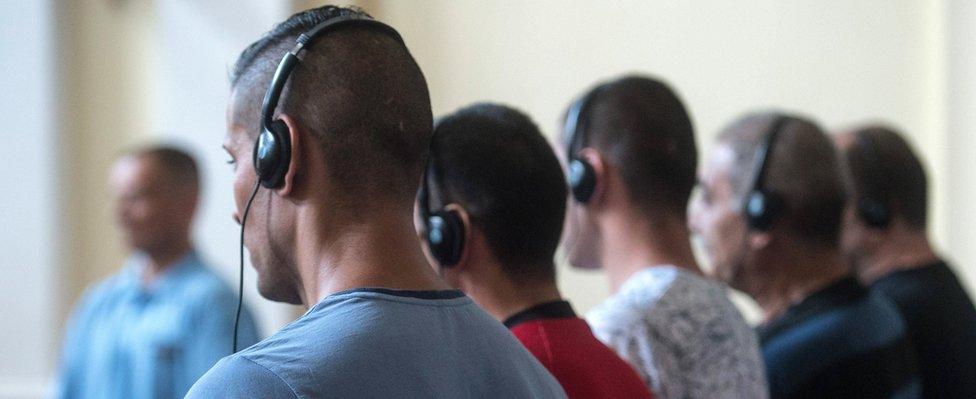
All the defendants are charged with human trafficking and torture and four of them with murder
The defendants - nine Bulgarians, an Afghan and a Lebanese - are being tried by a Hungarian court because the victims are thought to have died before the lorry reached Austria.
Almost two years on, the mood towards refugees in Austria and policies towards them have changed. And migrants are still dying at the hands of smugglers as they try to reach Western Europe.
"It was such a hot day," said Otto Lippert who works at the local Parndorf authority. "Our town had been planning a celebration that evening, but then the news came in that a small lorry containing dead people had been found on the A4 motorway near Parndorf."
Shaking his head, he added: "The party atmosphere was gone - catastrophe mood in its place."
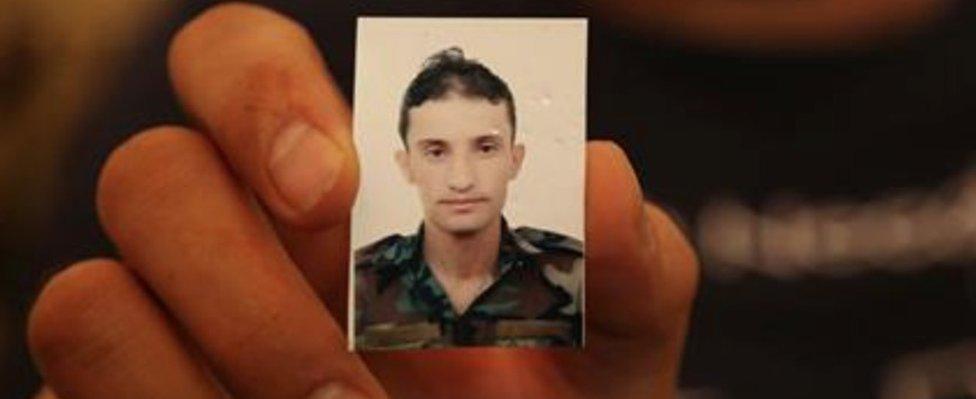
Among the victims was Nashwan Mustafa Rasoul, 28, from Iraqi Kurdistan
The migrants had suffocated, trapped in the back of the airtight vehicle. Prosecutors believe they died shortly after the van drove off from the Hungarian border with Serbia, before the truck reached Austria.
There were women and children among the dead. One was a baby, less than a year old.
They were found on the same day that European leaders, including Germany's Chancellor Angela Merkel, had been meeting in Vienna to discuss the increasing numbers of migrants and refugees travelling up through from the Western Balkans.
People in Parndorf were deeply shocked by the tragedy, says Otto Lippert.
"Everyone could sympathise. There were women and children among the dead. And they were angry with the smugglers. But then, probably as a result of the bodies being discovered, the borders were opened and refugees from Hungary were able to pass through Austria on their way to Germany.
"Thousands of refugees were moving through. People didn't like that and the mood tipped almost entirely the other way. There was a sense of angst and panic."
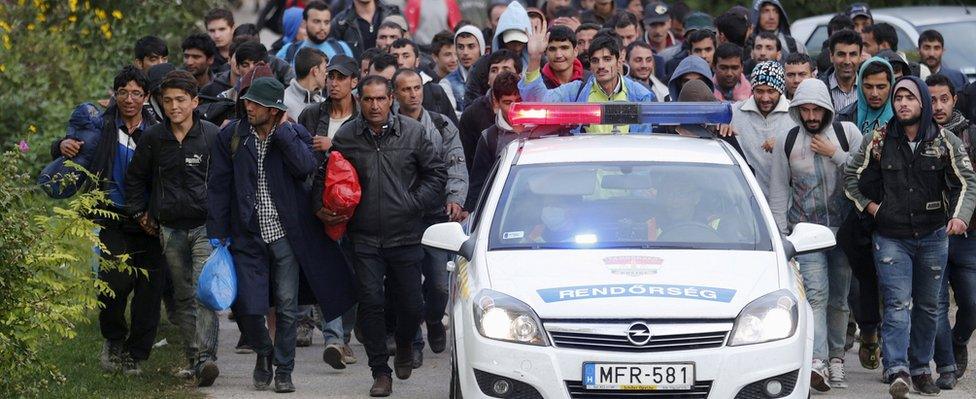
Austria became a major transit route for people heading to Germany and received 90,000 asylum requests in 2015
The borders on the Western Balkan route were not to remain open.
In 2016, Austria's Foreign Minister Sebastian Kurz played a key role in shutting the route down. Now he wants the Mediterranean route closed as well.
"The only way to take away the traffickers' business and end the dying in the Mediterranean is to ensure that anyone who sets off illegally does not arrive in Central Europe," Mr Kurz told the Austrian Press Agency recently.
He wants refugees rescued in the Mediterranean to be taken to holding camps in northern Africa.
Countries such as Tunisia and Egypt have reacted sceptically to his suggestion - but the hardline stance seems to be helping Mr Kurz in the opinion polls.
More migrants killed on roads
Far fewer migrants are now reaching Austria via the Balkan routes - but people smuggling in this region continues.
As a direct response to the discovery of the truck, Austria set up a cross-border operation to help police in Central Europe and the Balkans combat the problem.
The Joint Operational Office has made almost 200 arrests this year, according to Gerald Tatzgern of the Austrian police. But with the closing of the borders, the risks for migrants who pay smugglers to bring them to Western Europe are higher.
"Now we have these cargo-smuggling cases in lorries and vans, which makes it again, like the situation in 2015, very dangerous for the migrants," he says.
"We had a case last week where a 16-year-old Bulgarian smuggler without a driving licence had an accident. He had 27 migrants in a small lorry - and he had an accident and 10 died."
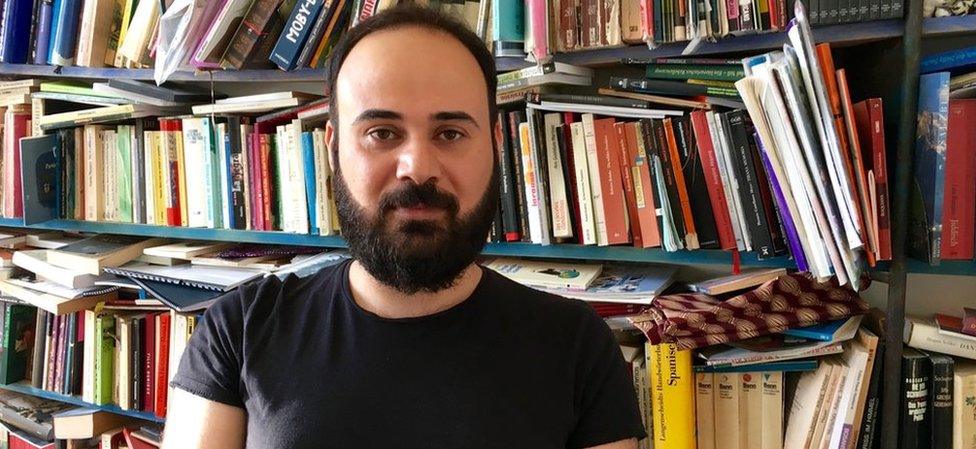
Yasser Alnazar says Austrians are on the whole positive about refugees
Yasser Alnazar arrived in Austria in 2015 when the borders were still open, shortly after the discovery of the lorry. He fled from Iraq because of his homosexuality and is waiting for his asylum claim to be processed.
He is currently performing in a new play highlighting conditions at the height of the migrant crisis in Austria's main asylum centre at Traiskirchen.
"Not everyone is open-minded to accept refugees," he says. "Some people just think these people came to our country to take our jobs. But in my life here, I have met more people who are positive about refugees. They are really kind to them and try really hard to help them."
- Published13 June 2017
